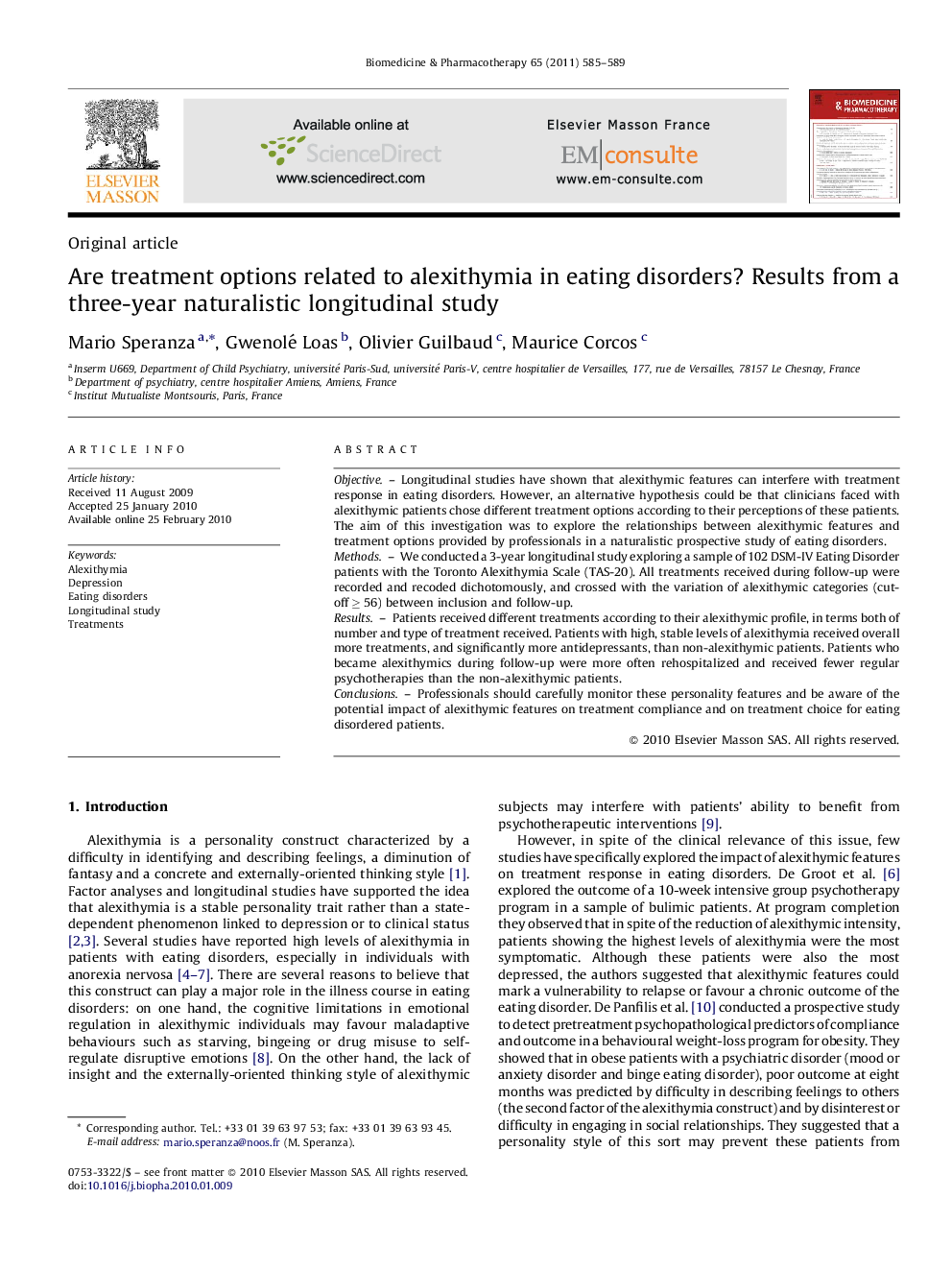| Article ID | Journal | Published Year | Pages | File Type |
|---|---|---|---|---|
| 2524444 | Biomedicine & Pharmacotherapy | 2011 | 5 Pages |
ObjectiveLongitudinal studies have shown that alexithymic features can interfere with treatment response in eating disorders. However, an alternative hypothesis could be that clinicians faced with alexithymic patients chose different treatment options according to their perceptions of these patients. The aim of this investigation was to explore the relationships between alexithymic features and treatment options provided by professionals in a naturalistic prospective study of eating disorders.MethodsWe conducted a 3-year longitudinal study exploring a sample of 102 DSM-IV Eating Disorder patients with the Toronto Alexithymia Scale (TAS-20). All treatments received during follow-up were recorded and recoded dichotomously, and crossed with the variation of alexithymic categories (cut-off ≥ 56) between inclusion and follow-up.ResultsPatients received different treatments according to their alexithymic profile, in terms both of number and type of treatment received. Patients with high, stable levels of alexithymia received overall more treatments, and significantly more antidepressants, than non-alexithymic patients. Patients who became alexithymics during follow-up were more often rehospitalized and received fewer regular psychotherapies than the non-alexithymic patients.ConclusionsProfessionals should carefully monitor these personality features and be aware of the potential impact of alexithymic features on treatment compliance and on treatment choice for eating disordered patients.
